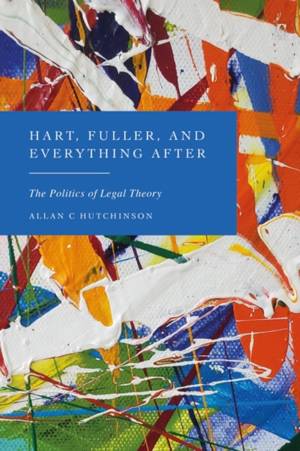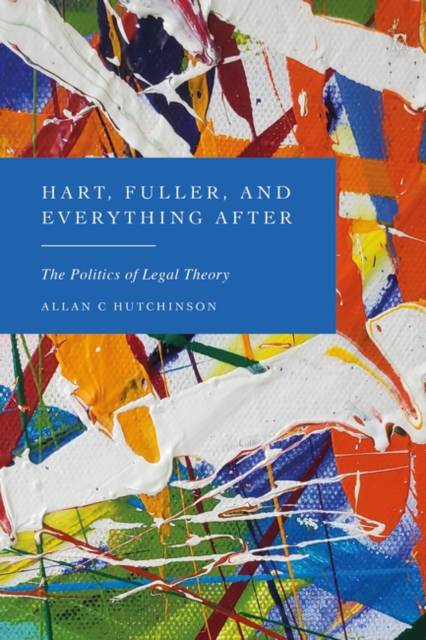
Bedankt voor het vertrouwen het afgelopen jaar! Om jou te bedanken bieden we GRATIS verzending (in België) aan op alles gedurende de hele maand januari.
- Afhalen na 1 uur in een winkel met voorraad
- In januari gratis thuislevering in België
- Ruim aanbod met 7 miljoen producten
Bedankt voor het vertrouwen het afgelopen jaar! Om jou te bedanken bieden we GRATIS verzending (in België) aan op alles gedurende de hele maand januari.
- Afhalen na 1 uur in een winkel met voorraad
- In januari gratis thuislevering in België
- Ruim aanbod met 7 miljoen producten
Zoeken
Hart, Fuller, and Everything After
The Politics of Legal Theory
Allan C Hutchinson
Hardcover | Engels
€ 195,45
+ 390 punten
Omschrijving
More has been said about the Hart-Fuller debate than can be considered healthy or productive even within the precious world of jurisprudential scholarship - too much philosophising about how law has revelled in its own abstractness and narrowness. But the mission of this book is distinctly and determinedly different - it is not to rework these already-rehashed ideas, but to reject them entirely.
Rather than add to the massive jurisprudential literature that has been generated by all and sundry, the book criticises and abandons the project that Hart and Fuller set in motion. It contends that the turn that was taken in 1957 has led down a series of cul-de-sacs, blind alleys, and dead-ends to nowhere useful or illuminating. It is more than past time to leave their debate behind and strike out in an entirely new and more promising direction. The book insists that not only law, but also all theorising about law, is political in all its derivations, dimensions, and directions.
Rather than add to the massive jurisprudential literature that has been generated by all and sundry, the book criticises and abandons the project that Hart and Fuller set in motion. It contends that the turn that was taken in 1957 has led down a series of cul-de-sacs, blind alleys, and dead-ends to nowhere useful or illuminating. It is more than past time to leave their debate behind and strike out in an entirely new and more promising direction. The book insists that not only law, but also all theorising about law, is political in all its derivations, dimensions, and directions.
Specificaties
Betrokkenen
- Auteur(s):
- Uitgeverij:
Inhoud
- Aantal bladzijden:
- 248
- Taal:
- Engels
Eigenschappen
- Productcode (EAN):
- 9781509965205
- Verschijningsdatum:
- 23/02/2023
- Uitvoering:
- Hardcover
- Formaat:
- Genaaid
- Afmetingen:
- 156 mm x 234 mm
- Gewicht:
- 521 g

Alleen bij Standaard Boekhandel
+ 390 punten op je klantenkaart van Standaard Boekhandel
Beoordelingen
We publiceren alleen reviews die voldoen aan de voorwaarden voor reviews. Bekijk onze voorwaarden voor reviews.









